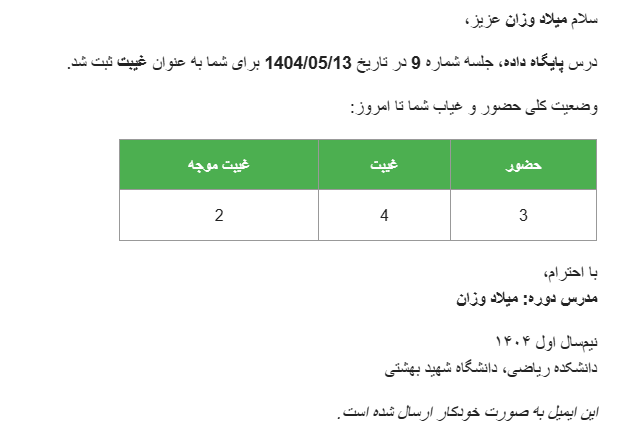Syllabus
Course Overview
This course bridges data analysis and database management systems (DBMS), focusing on both the design of relational databases and their use in modern analytical workflows. Students will learn how to structure data, query it efficiently, and perform local analytics with modern tools.
The course is structured into two main parts:
- Database Design and SQL with PostgreSQL
- Fundamentals of Entity-Relationship (ER) modeling and converting ER diagrams into relational schemas.
- Writing basic to advanced SQL queries for data retrieval, manipulation, and aggregation.
- Implementing database designs using PostgreSQL for reliable and scalable data management.
- Data Analysis and Local Analytics with DuckDB
- Performing analytical workflows using DuckDB for fast, local data exploration.
- Importing, cleaning, and analyzing real datasets (CSV, Parquet) directly from storage.
- Integrating with Python (Pandas) and visualization tools for in-depth data insights.
- Understanding the difference between analytical (OLAP) and transactional (OLTP) databases in practical applications.
Course Objectives
By the end of this course, students will:
- Understand the fundamentals of database theory and their role in data-driven workflows.
- Design ER models and implement them as relational databases using PostgreSQL.
- Formulate SQL queries for preparing, aggregating, and transforming data.
- Utilize DuckDB for local analytics and fast exploration of datasets.
- Connect databases to Python (Pandas) for advanced data analysis and computation.
- Use visualization tools (Power BI, Streamlit) to create dashboards and present insights interactively.
- Deliver a final project that combines database design, SQL, and analytical reporting in a cohesive workflow.
Hands-on Environment
- PostgreSQL: For relational database design and SQL practice.
- DuckDB: For local analytics and fast data exploration.
- Python (Pandas): For data cleaning and analysis.
- Power BI / Streamlit: For visualization and interactive reporting.
📚 View Detailed Teaching Plan↵
Homework Assignments
Throughout the course, students will complete several homework assignments aimed at reinforcing the concepts covered in lectures and reading materials (See the homework page, which will be updated during the course). The due dates for these assignments will be posted on this website.
Please follow the instructions to turn in your homework:
- Homeworks must be submitted electronically as PDF files.
- Files should be named according to the following scheme:
- HW<2-digits homework number>_<LastName>_<FirstName>.pdf.
- For instance, my first homework would be called HW01_Vazan_Milad.pdf.
- 📧 Email your homework to [email protected]
⚠️ Important: Emails with this exact subject format will receive an automatic confirmation reply upon submission. If you do not receive this confirmation within five minutes, it means your email was not received.
The deadline for each assignment will be announced separately. An automatic reminder will be sent one day before the deadline to the email address you provided to the instructor during the first session.
If the deadline is extended, students who have not submitted their assignment will receive another automatic email one day before the new deadline.
Exams
The course will include two exams. Both exams will assess the required readings and topics covered in class. The first exam will be an “in-class” midterm, while the second will be a final exam scheduled during the University’s final examination period at the end of the semester.
If you need to miss the midterm test due to illness or a family affliction, please contact me by email. A make-up exam for the midterm might be organized.
Attendance and Participation
Attendance is required, and exceeding four absences may result in a penalty of up to 2 points off your total grade. Active participation in both in-class activities and the online message board is highly encouraged.
Grading
- Class attendance and participation: 2 points
- Homeworks: 4 points
- Final project: 4 points
- Midterm exam: 4 points
- Final exam: 6 points
Seeking Assistance
Here are the available help resources, organized by the urgency of your issue:
Messaging
Our course will utilize a Telegram group (link to be provided in class) as the primary communication platform for announcements and discussions. This is an ideal space for asking questions that can be answered by anyone. It’s best to use this resource for non-urgent inquiries.
Talk with the Instructor
For any issues at all, please reach out to the instructor:
- Speak with me before class
- Raise your hand or speak up during class
Collaboration Policy
You are encouraged to discuss the content of this course with anyone you like; however, it is essential to maintain academic integrity in your work. All homework assignments, projects, and exams must be completed independently, meaning you are not permitted to copy any part of another student’s solution, collaborate with others on your assignments, or use solutions from unauthorized sources, including the Internet. Therefore, the solution you submit for each assignment must be solely your own, reflecting your understanding and effort.
Required Tools and Accounts
To successfully participate in this course, students are expected to prepare the following tools and accounts prior to the practical sessions:
- Python: Install the latest stable version of Python for running scripts and interacting with databases.
- GitHub Account: Create a GitHub account.
- Streamlit Account and GitHub Integration: Link your GitHub account to Streamlit to deploy database-driven web applications.
- Visual Studio Code
- PostgreSQL
- DuckDB: Install DuckDB for lightweight, embedded database tasks and analytical queries.
- Power BI: Used for data visualization and creating interactive dashboards to analyze database results.
- Marimo: This will be used as the primary environment for interactive notebooks and coding sessions.
pip install “marimo[recommended]”
- Pandas:
pip install pandas
- PySpark:
pip install pyspark
Hardware Requirement
For the SQL and practical sessions, students will need a laptop or a smartphone to follow along and complete in-class exercises.
Related Courses
Other Databases courses
- New York University - Database Design & Implementation
- UC Berkeley - Introduction to Database Systems
- CARNEGIE MELLON UNIVERSITY - Database Systems
- University of Washington - Introduction to Database Systems
- The University of Chicago - Introduction to Database Systems
- University of Waterloo - CS 348: Introduction to Database Systems
- NTHU - CS 471000 Introduction to Database Systems
- The Ohio State University - Introduction to Database Systems
A note on self care.
Please take care of yourself. Do your best to maintain a healthy lifestyle this semester by eating well, exercising, getting enough sleep and taking some time to relax. This will help you achieve your goals and cope with stress.



